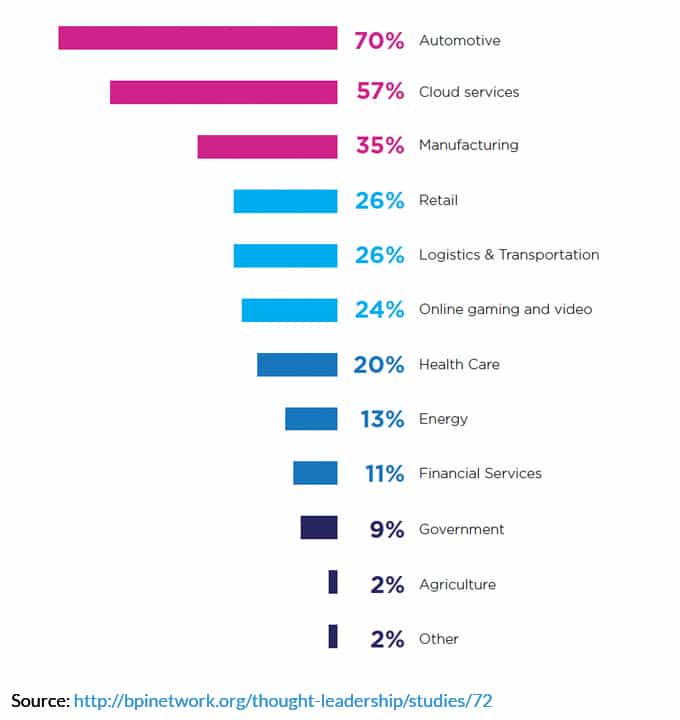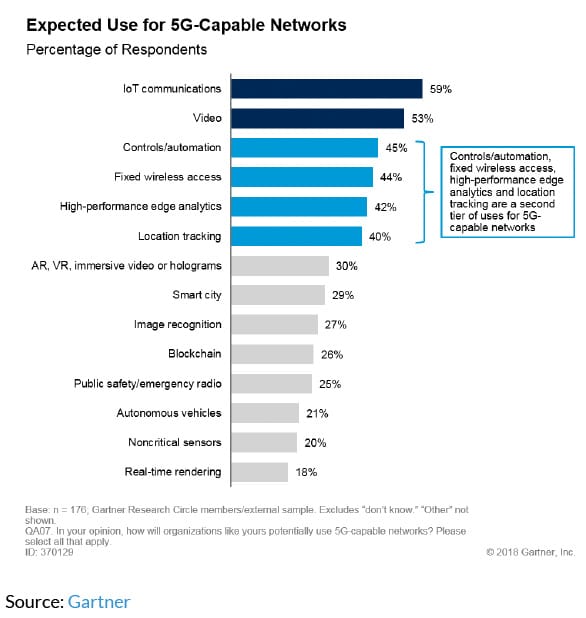
ASOCS is disrupting the industrial network connectivity market with an open and virtualized software solution that delivers 5G private mobile network solutions in a single software stack.
The past decade has not been kind to mobile operators. Brand value and loyalty have plummeted in the ongoing battle for yield and profitability in a saturated market with declining margins. While ARPU continues to shrink, demand for speed, coverage, and service quality keeps rising.
5G vows to be the latest answer to the troubles of mobile operators, with a promise of significantly higher throughput, lower latency and low cost per GB. But just like any new technology, deployment is costly and use-cases are yet to be revealed, as more and more mobile operators are still overcoming the hurdles and progressing to 5G experiments, trials, and beyond.
Will operators be able to effectively handle the burden of investment needed to deploy 5G networks? Will the newly available services enabled by 5G networks actually prove to be a life-line for this struggling industry? Are the risks and costs worth the potential revenues? Here’s what we think…
5G: A New Hope?

Many mobile operators are already betting on 5G, or at the very least exploring it. According to a survey by the Business Performance Innovation (BPI) Network released in May this year, over half (54%) of mobile operators are either “Well along in pilot testing and trials” (28%) or “Moving rapidly toward commercial deployment” (26%). So this isn’t a new hope, but a future hope. Especially if you consider the fact that 5G-enabled devices will not hit mass adoption anytime before mid-2020.
4G technology brought the mobile broadband revolution to users and enterprises alike. Although it introduced better coverage, video streaming, interactive apps and a BYOD (bring your own device) policy, mobile operators’ ARPU is decreasing as bandwidth demand rises and data-unit costs remain the same. This simple equation is one of the main drivers for 5G adoption by mobile operators. The implementation of 5G technologies like massive MIMO to expand capacity at a lower cost per GB can increase operating margins and perhaps save mobile operators from doom, at least in the short run.
In the long run, 5G promises to disrupt whole industries and verticals by introducing an infrastructure that can support high-performance edge computing connectivity, network sharing, service orchestration, and industrial IoT applications. Another great reason for mobile operators to be hopeful about 5G is its potential to enable mobile providers to finally offer both businesses and home users fixed wireless connectivity with the capacity to replace land-lines – cordless plug-and-play broadband deployment.
In which industries do you expect 5G to cause the most disruptive

That said, it’s important to remember that many mobile operators are still hard at work implementing and expanding their 4G/LTE networks to meet consumer demands. So while the future does look bright, it would take a few years, at best, before mobile operators can hope to see a positive ROI in the consumer market. But is the same true in the enterprise market?
The business case for the B2B/Enterprise segment
Like with many new technologies, the initial use cases for 5G are bound to be born from enterprise needs and aspirations. In 5G deployments and related services, it seems like enterprise use cases are going to be the dominant ones, and critical for success. It’s no wonder that Gartner and executives in leading telcos like AT&T and Verizon are betting on the enterprise and public sectors with 5G. They can see the potential, and for the first time in many years, mobile operators can get creative and innovative with their offerings to enterprise clients.
According to Igor Glubochansky, assistant vice president of mobility product management at AT&T, the foundational components of 5G networks are putting mobile operators in competition with software providers for the first time. “Retailers will be able to deliver new ways to shop, and machines in massive factories could be better controlled and operated with edge computing and 5G” he predicts. Nicola Palmer, chief network engineering officer and head of wireless networks at Verizon, cannot imagine an industry that will remain untouched by 5G. “The real-time enterprise will be powered by 5G,” she adds.

Even though massive deployment is still a long way off, major telcos are hoping to revolutionize industries like healthcare, manufacturing, transportation and financial services with 5G technologies. For the first time in a very long time, mobile operators’ product managers and executives can kick back and let their imaginations run wild, creating marketable product packages for their enterprise clients in various verticals.
Imagine a healthcare provider that can offer patients real-time health monitoring in their home using IoT and 5G technologies, perhaps even combined with AI data analysis. Think of giant farms where maintenance is fully automated and managed remotely, with information from each sensor continuously analyzed for yield optimization. Now, try and picture a world with smart cars and connected cities limited by the speeds and costs of 4G. How scalable and sustainable can that be? Not very.
While there are some nay-sayers who claim 5G technologies still lack clear use-cases in the field, there are those who are turning the supposed challenges into marketable solutions. One perfect example is the challenge of indoor connectivity with 5G networks. Since 5G uses higher frequencies for transmission, the radio waves are less capable of penetrating obstructions like walls, metal insulation and treated glass.For mobile service providers, this creates an opportunity to securely and seamlessly extend 5G networks with existing infrastructure in corporate and public structures, and offer additional added value services like localized private networks.
When it comes to 5G, like with many other innovative technologies, the difference between success and disaster highly depends on the cost-effectiveness of implementation. It also depends on the service provider’s ability to fully understand the needs of enterprise clients and deliver flexible solutions to suit their ever-changing needs, before the competition does.





